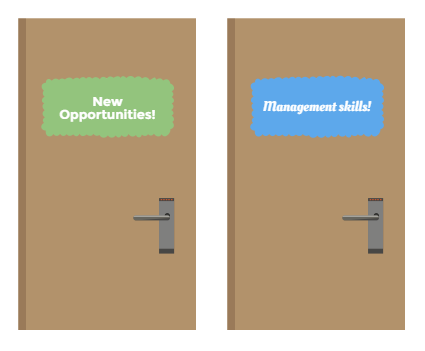- Philippa McIntosh
- October 24th, 2016
One of the most common questions we are asked by people weighing up a Lean Six Sigma qualification is how it will impact their future: Will a Lean Six Sigma qualification be good for my career?
The answer, of course, depends on who is taking the qualification, what they intend to do with it and the quality of the course they attend. However, by and large,the answer is that yes, taking training in Lean Six Sigma will give your career a boost.
And here’s why:
Transferable skills
Transferable skills is one of those terrible buzzwords that everyone tries to cram on their resume, but few seem able to back up just why their skills are transferable. Lean Six Sigma is a clear exception as the method has been created with flexibility and stability built into it. That means that it doesn’t 
In fact, most of our past delegates find they can’t even stop themselves from applying the tools and techniques in their own personal lives. But, while creating shadow boards for the utensils in your kitchen may make unpacking the dishwasher a dream, it may not go down that well with your other half.
Rod Morgan, vice-president of program management at e-Zsigma (Canada) Inc., said it best when talking to the Globe and Mail:
“One of the biggest things, when organisations are hiring these skilled resources, is that they know this skill set is totally transferable. You can take this skill set that you are applying in a service organisation, walk across the street and apply it in a manufacturing company, or walk across the street and apply it in a hospital.”
No industry is off limits
While Lean Six Sigma and other Business Improvement methods may have cut their teeth in the manufacturing industry, the benefits are not restricted to production lines and inventory.
Indeed, many other industries have been adopting Business Improvement practices in order to make their own processes more efficient – including transaction and public sector services. This push for efficiency in the public sector and the NHS particularly makes sense, as Lean Six Sigma relies on limited capital expenditure, does not advocate redundancies as a ‘quick win’ and encourages those with the knowledge of the process to recommend improvements to it. Many NHS Trusts we have worked with have seen significant savings without having to cut services.
Similarly, your average office is chock-full of opportunities to streamline, remove waste and increase productivity. Wherever there is a process, there is an opportunity for improvement.
This means a Lean Six Sigma qualification does not limit you to a particular field for the rest of your career, and provides a huge amount of flexibility.
 Open new doors
Open new doors
During a Lean Six Sigma project, you can expect to work with a broad range of people in departments you may not have worked in before. This expands your network within the organisation, and increases the number of people in positions of authority with a (hopefully) positive view of what you can do.
This means you have the potential to take advantage of more opportunities within your existing place of work, just by building up your network.
But it works in the wider world too.
Running a Lean Six Sigma project requires effective people and time management, which can help you move up the career ladder and into positions in higher management if that’s what you’re interested in. However, you’ll also gain plenty of experience across a broad range of departments, giving you loads of fodder for your resume – even if you are planning a sideways move.
Practical experience necessary
What you’ve probably noticed so far is the presumption of projects and experience in someone with a Lean Six Sigma qualification. This is important.
While your Lean Six Sigma training gives you the skills to run projects, it is the success and credibility of those projects that indicate your ability. You need both training and practical experience for a Lean Six Sigma qualification to have any real impact on your career trajectory.
A graduate may find that a Lean Six Sigma qualification helps her stand out from the crowd and get her foot through the door, but it is those who have a couple of projects under their belt that will really reap the benefits. That’s why 100% Effective will only certify Green and Black Belts following the completion of one or two successful projects respectively.
While a live project is always preferable – as it allows you to practice your people management and influencing skills – it is not always possible. In these cases we offer realistic, in depth case studies to complete. Nevertheless, we urge all delegates to continue to run projects even after completing their certification, as this is the best way to hone and build on your new skills.
In-demand skills
As the average Green and Black Belt can expect to run several projects a year, with savings often running into the hundreds of thousands, it’s no surprise that people with proven experience are highly sought after.
This demand means that those with a Lean Six Sigma qualification, and experience running projects, can expect to see their new abilities reflected in their pay packets. The most recent figures show that the average Green Belt earns around £45,000 per year, and the average Black Belt can command a salary of £55,000. However, those with a proven track record can demand even more, with some earning upwards of £100,000.
So if you’re thinking about learning a new skills, there aren’t many better for your career progression than Lean Six Sigma. Click below to try our FREE White Belt introductory course, or call 0800 066 3749 to speak to one of our experienced course consultants.


 Open new doors
Open new doors